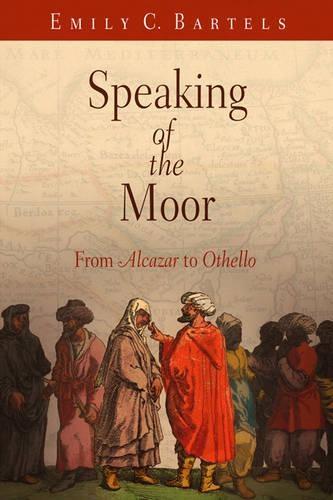Overview
Selected by Choice magazine as an Outstanding Academic Title ""Speak of me as I am,"" Othello, the Moor of Venice, bids in the play that bears his name. Yet many have found it impossible to speak of his ethnicity with any certainty. What did it mean to be a Moor in the early modern period? In the late sixteenth and early seventeenth centuries, when England was expanding its reach across the globe, the Moor became a central character on the English stage. In The Battle of Alcazar, Titus Andronicus, Lust's Dominion, and Othello, the figure of the Moor took definition from multiple geographies, histories, religions, and skin colors. Rather than casting these variables as obstacles to our-and England's-understanding of the Moor's racial and cultural identity, Emily C. Bartels argues that they are what make the Moor so interesting and important in the face of growing globalization, both in the early modern period and in our own. In Speaking of the Moor, Bartels sets the early modern Moor plays beside contemporaneous texts that embed Moorish figures within England's historical record-Richard Hakluyt's Principal Navigations, Queen Elizabeth's letters proposing the deportation of England's ""blackamoors,"" and John Pory's translation of The History and Description of Africa. Her book uncovers the surprising complexity of England's negotiation and accommodation of difference at the end of the Elizabethan era.
Full Product Details
Author: Emily C. Bartels
Publisher: University of Pennsylvania Press
Imprint: University of Pennsylvania Press
Dimensions:
Width: 15.20cm
, Height: 2.50cm
, Length: 22.90cm
Weight: 0.540kg
ISBN: 9780812240764
ISBN 10: 0812240766
Pages: 264
Publication Date: 25 June 2008
Audience:
College/higher education
,
Tertiary & Higher Education
Format: Hardback
Publisher's Status: Out of Print
Availability: Awaiting stock

Reviews
Bartels is one of the first, and certainly one of the most influential, literary critics to emphasize the crucial point that before the onset of the Atlantic slave trade, Africa's place in early modern English conceptualizations was open ended. She shows with great clarity that narratives of Africa were diverse and unpredictable. -Mary Floyd-Wilson, University of North Carolina at Chapel Hill Bartels discovers a surprising openness in the treatment of the Moor in early modern England. Her book makes a significant contribution to our understanding of the formative history of race and color. -Michael Neill, University of Auckland
Author Information
Emily C. Bartels is Associate Professor of English at Rutgers University and Associate Director of the Bread Loaf School of English at Middlebury College. She is author of Spectacles of Strangeness: Imperialism, Alienation, and Marlowe, also published by the University of Pennsylvania Press.



